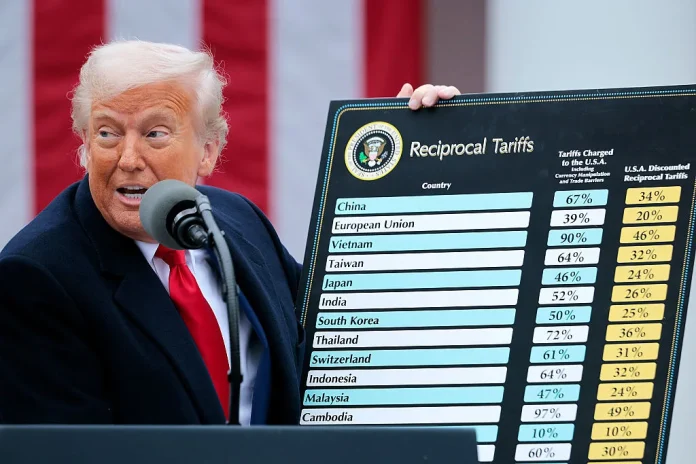NEW DELHI, April 10: In a major trade policy move, US President Donald Trump has declared a 90-day pause on all “reciprocal” tariffs—excluding those imposed on China, which will see an immediate hike to 125%. This announcement marks a significant shift in the ongoing trade dynamics between the US and its global partners, including India.
Trump, who previously introduced multiple tariff measures citing trade imbalances, stated that more than 75 countries had entered into negotiations with the US and refrained from retaliating. As a result, he authorized a temporary reduction of reciprocal tariffs to 10% for these nations, effective immediately.
“Conversely, and based on the fact that more than 75 Countries have called Representatives of the United States, including the Departments of Commerce, Treasury, and the USTR, to negotiate a solution to the subjects being discussed relative to Trade, Trade Barriers, Tariffs, Currency Manipulation, and Non Monetary Tariffs, and that these Countries have not, at my strong suggestion, retaliated in any way, shape, or form against the United States, I have authorized a 90 day PAUSE, and a substantially lowered Reciprocal Tariff during this period, of 10%, also effective immediately. Thank you for your attention to this matter!” Trump posted.
However, in a striking escalation, Trump simultaneously increased tariffs on China to 125%, up from the earlier declared rate of 104%. “Based on the lack of respect that China has shown to the World’s Markets, I am hereby raising the Tariff charged to China by the United States of America to 125%, effective immediately,” Trump said, adding, “At some point, hopefully in the near future, China will realize that the days of ripping off the U.S.A. and other Countries is no longer sustainable or acceptable.”
The 10% tariff will now serve as the baseline rate for most nations during this 90-day pause. It had officially come into effect last Saturday.
In the wake of the announcement, US Treasury Secretary Scott Bessent clarified that the pause is intended to allow room for continued negotiations and is not a reaction to recent market fluctuations. He emphasized that the decision aims to give trade partners time to resolve outstanding issues related to tariffs, trade barriers, and currency manipulation.
The pause and tariff shift could have ripple effects globally, particularly for Indian supply chains, which may experience short-term disruption amid ongoing recalibration of trade agreements.
Earlier, RBI Governor had warned that US tariffs could impede global economic growth more than they would stoke inflation—adding another layer of concern as Trump’s protectionist trade stance continues to reshape global commerce.

